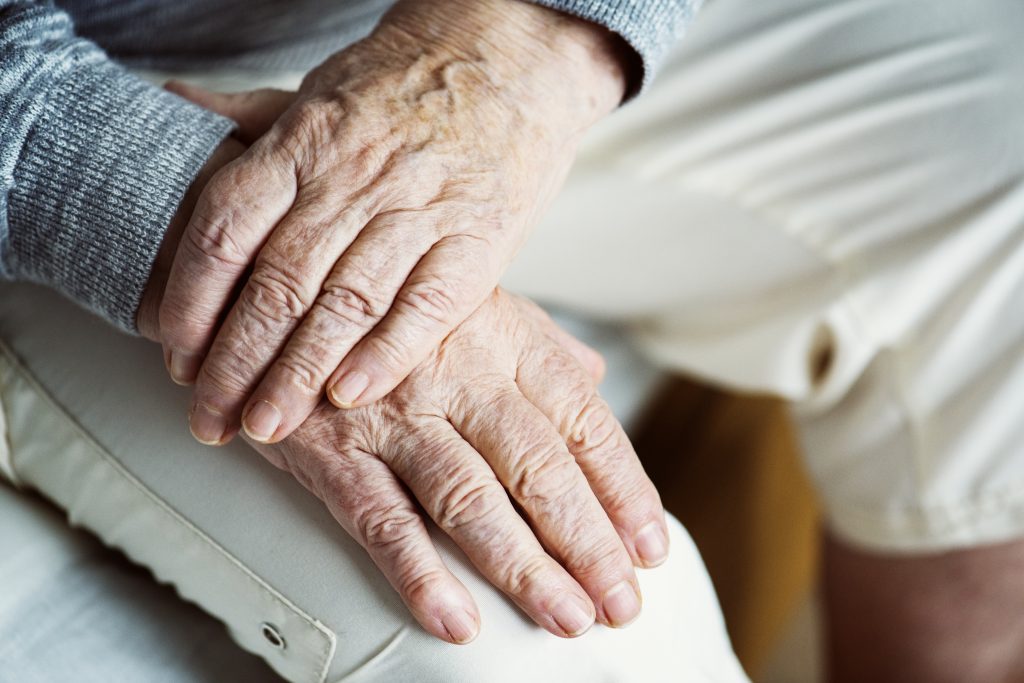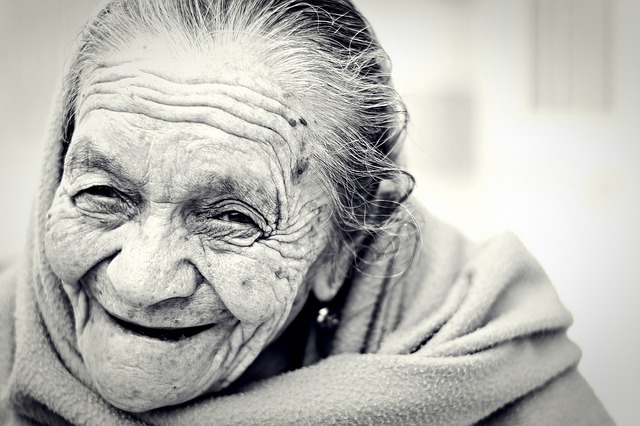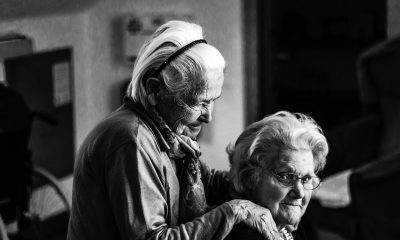- Aging and the Mind and Brain
- Aging and Mental Health
- Sociability and Wellbeing in Old Age
- Aging and Inner Growth
We live in a society that has a clear fixation on youth. That’s nothing new. In our culture, we often see the elderly depicted as past their prime, as being on an ongoing decline as they “lose touch” with culture and succumb to dementia and memory loss.
But old age is so much more than that. Like other stages of life — childhood, adolescence, middle adulthood — old age has its own unique psychology, and it’s possible to find happiness, contentment, and stability all the way to the very end.
Carl Jung, one of the foremost psychological thinkers of the twentieth century, felt that a youth-obsessed culture had, in some ways, robbed the second half of life of its meaning. He saw old age as a vital part of the process of living a human life: “The first half of life is devoted to forming a healthy ego; the second half is going inward and letting go of it.”
Of course, old age also comes with its own psychological difficulties, from feelings of unfulfillment and stagnation, to frank mental illness. And it sometimes feels like the mental health problems of age are largely ignored.

Aging and the Mind and Brain
Aging does have an effect on a person’s individual psychology. Some changes are related to negative health issues, but aging can also bring positive changes to a person’s self-identity, outlook on life, and sense of their own place and role in the universe. Many people reach a peace and understanding with themselves as they grow older, having gained the wisdom that only decades of life experience can bring.
Some of the aspects of the mind — and underlying brain structures — that can change with age include:
- Attentional processes. On the whole, a person’s ability to change tasks and sustain attention follows a downward trend toward the very end of life. Sustained attention is generally intact, but the ability to divide attention between multiple foci and tasks may decline. It can get harder to focus on multiple things at once, and juggle different stimuli coming at you all at once. For example, preparing food while engaging in a conversation might become harder. Another change is that on the whole, older people perform more poorly than young people on tasks, in a laboratory setting, that require them to filter out irrelevant information.
- Memory. For the most part, short-term passive memory doesn’t change much with age, outside of cases where the person has an underlying neurological issue. There may be a small decrease in speed of information retrieval. What does decline with age is our working memory, particularly after the age of about seventy. Even in people without dementia, who are in good neurological health, there are perceptible changes in working memory compared with younger subjects. Procedural and declarative memory — long term — are intact. Episodic memory — your vivid memories of things that happened to you in your life — may decline somewhat, especially with episodic memories from earlier in life.
- Intelligence. Contrary to popular belief, people don’t become less intelligent as they age. Other than people with dementia and other causes of memory problems, a person’s crystallized intelligence will generally be seen to increase over their lifetime. Fluid intelligence, however, may indeed deteriorate. It does become more challenging to learn brand new things than it used to be.

Aging and Mental Health: Depression and Anxiety Among Seniors
In today’s world, depression plays an unfortunate role in the psychology of old age for many, many people. While it’s common for major depression and other mood disorders to first manifest earlier in life — often in a person’s teens through mid twenties — the onset may not occur until much later. It’s estimated that around half of all depression cases originate during middle or late adulthood.
Along with dementia — with which it’s often comorbid — depression is a serious problem for seniors. Depression has a real impact on cognitive function, memory, and even physical vigor and wellness. People with depression are often more susceptible to other illnesses, and having an illness — such as Alzheimer’s or physical health problems — can itself trigger depression in people susceptible to it.
After all, aging can be emotionally difficult to go through. Illnesses, injuries, and “wear and tear” on the body, all make it harder to do things physically. People often develop difficulties with things like walking, which young people generally take for granted. Losing memory function can also be distressing, and many dementia patients do exhibit a sense of knowledge regarding their impairments.
Aging can also be lonely. People close to us who were older have often passed away, as may those close to us in age. Grandparents, parents, friends — many seniors have grieved many times during their life for people they’ve lost.
There’s a growing recognition of the need for robust mental health services specifically for older adults. The field of geropsychology — the psychology of later life — will become increasingly important as life spans increase, and the population of people over seventy continues to grow over time. Currently, as many as two thirds of seniors with mental health issues may not be receiving the right treatment.
Many visits from seniors to primary care providers — an estimated 50-70%, in fact — relate to issues that are ultimately psychological in origin. Anxiety, depression, and stress can cause fatigue, general malaise, poor appetite, weight loss, reduced activity, and other nonspecific physical symptoms that become apparent to individuals and their caregivers. Depression also lowers immunity, making the person more susceptible to transmissible illnesses like influenza or gastrointestinal illnesses.
Sociability and Wellbeing in Old Age
Research has indicated that being social may go a long way toward preventing late life depression. There’s a lot to be said for not going through things alone. Many seniors struggle with health problems that make it harder to get around, which can lead to them feeling cooped up and isolated.
Seniors generally make friends within their own age cohort, and social activities for seniors can make a big difference in wellbeing. It’s not necessarily a total cure for depression — in fact, depressed people may feel less inclined toward being social, even if they are lonely. But it can make a difference.
While medication side effects are a concern with seniors, may of whom are already on several medications for various health conditions, antidepressants may help as well. These drugs don’t cure mental health problems, and they don’t address the psychosocial aspects of these disorders. But, by correcting some of the underlying neurochemical abnormalities found in anxiety and depression, drugs like SSRIs (Zoloft, Prozac, etc.), SNRIs (Celexa, Effexor), and NDRIs (Wellbutrin), can help facilitate recovery when combined with other evidence-based interventions like various styles of talk therapy.
Aging and Inner Growth: The Culmination of a Lifetime of Being
Many psychological theorists have talked about stages of life, and how our psychological dynamics and priorities shift over time. Erik Erikson, for example, spoke of old age as being characterized by a conflict of “wisdom versus despair.” As a person nears the end, and looks back on themselves and their lives, they may be faced with regrets and doubt — not to mention death anxiety, the fundamental discomfort people have about our own mortality.
But the upside is wisdom. Seniors have been there and done that; they’ve seen it all. Life and all its experiences teaches you things. And one of those things is acceptance, the ability to let go. To Jung, this was the crux of old age and its psychology: the culmination of a lifetime of ego development, the process of creating and becoming ourselves.






